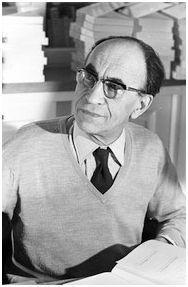Louis Dumont facts for kids
Quick facts for kids
Louis Dumont
|
|
|---|---|
 |
|
| Born | 11 August 1911 Thessaloniki, Ottoman Empire (now Greece)
|
| Died | 19 November 1998 Paris, France
|
| Nationality | French |
| Citizenship | France |
| Scientific career | |
| Fields | Anthropology |
| Institutions | Oxford University, École des Hautes Études en Sciences Sociales |
Louis Charles Jean Dumont (born August 11, 1911 – died November 19, 1998) was an important French anthropologist. Anthropologists are scientists who study human societies and cultures. Dumont was especially known for his deep studies of India and for comparing different ways people think about individuals and groups.
Contents
Who Was Louis Dumont?
Louis Dumont was a brilliant thinker who helped us understand how societies work. He spent many years studying the unique cultures of the world. His work often looked at how people in different places see themselves. He explored if they see themselves as part of a big group or as unique individuals.
Early Life and Studies
Louis Dumont was born in Thessaloniki, which was part of the Ottoman Empire at the time. Today, this city is in Greece. He later became a professor at Oxford University in England during the 1950s. After that, he became a director at a famous school in Paris, France. This school was called the École des Hautes Études en Sciences Sociales.
Exploring Cultures: Anthropology
Dumont was an expert in anthropology. This field of study looks at human societies and cultures. Anthropologists try to understand how people live, what they believe, and how their societies are organized. Dumont was particularly interested in the culture and societies of India. He also studied how people in Western countries think about society and life.
Big Ideas: Groups vs. Individuals
One of Dumont's most famous ideas was about two ways societies can be organized. He called these ideas holism and individualism. He believed that understanding these two ideas helps us understand different cultures.
What is Holism?
In a society that focuses on holism, the group is seen as more important than any single person. People in these societies often think about their family, community, or social class first. Their identity comes from being part of a larger whole. For example, in some traditional societies, what is good for the village is more important than what one person wants.
What is Individualism?
On the other hand, individualism is when a society focuses on the importance of each person. In these societies, people often value personal freedom and choices. They believe that each person has their own rights and can make their own decisions. Many Western societies today have strong individualistic ideas.
Famous Books
Dumont wrote several important books that shared his ideas. One of his most famous books is Homo Hierarchicus: Essai sur le système des castes (1966). In this book, he explored the caste system in India. He also wrote From Mandeville to Marx: The Genesis and Triumph of Economic Ideology (1977). Another key book was Essais sur l'individualisme: Une perspective anthropologique sur l'idéologie moderne (1983). In this book, he clearly showed the differences between holism and individualism.
Louis Dumont passed away in Paris, France, when he was 87 years old. His work continues to help us understand the many different ways people live and organize their societies around the world.
See also
 In Spanish: Louis Dumont para niños
In Spanish: Louis Dumont para niños
- Alliance theory
 | William L. Dawson |
 | W. E. B. Du Bois |
 | Harry Belafonte |

